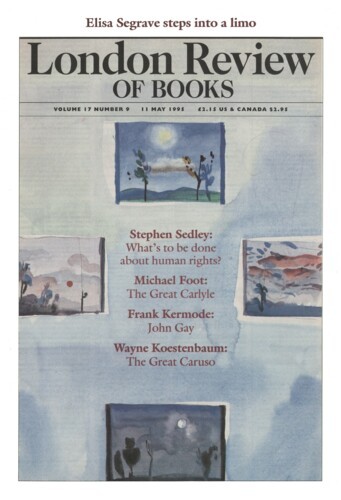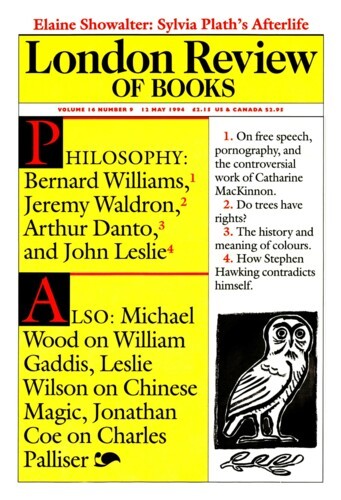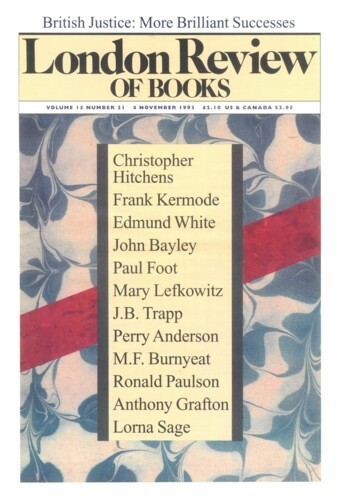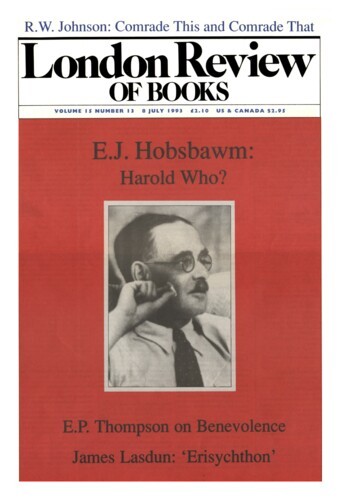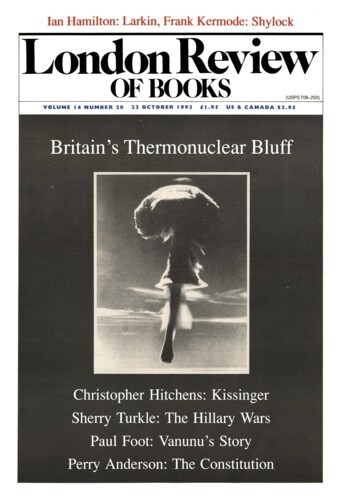Satisfaction
Julian Loose, 11 May 1995
Clearly, for Martin Amis, enough is nothing like enough. To read him is to discover an author as voracious as his characters: like Terry in Success, who specifies that ‘I want all that and I want all that. And I want all that and I want all that. And I want all that and I want all that.’ Or like the fast-food, fast-sex junkie John Self of Money, who always gets less than he bargains for, yet keeps going back for more: ‘I would cheerfully go into the alchemy business, if it existed and made lots of money.’ Amis goes to any length to remind us of our whole-hearted addiction to the unwholesome – to alcohol, say, or nuclear weapons. The central character in his new novel, The Information, is so committed to smoking that he wants to start again before he’s even given up: ‘Not so much to fill the little gaps between cigarettes with cigarettes (there wouldn’t be time, anyway) or to smoke two cigarettes at once. It was more that he felt the desire to smoke a cigarette even when he was smoking a cigarette.’ Keith Talent in London Fields feels much the same way about pornography: ‘He had it on all the time, and even that wasn’t enough for him. He wanted it on when he was asleep. He wanted it on when he wasn’t there.’’
